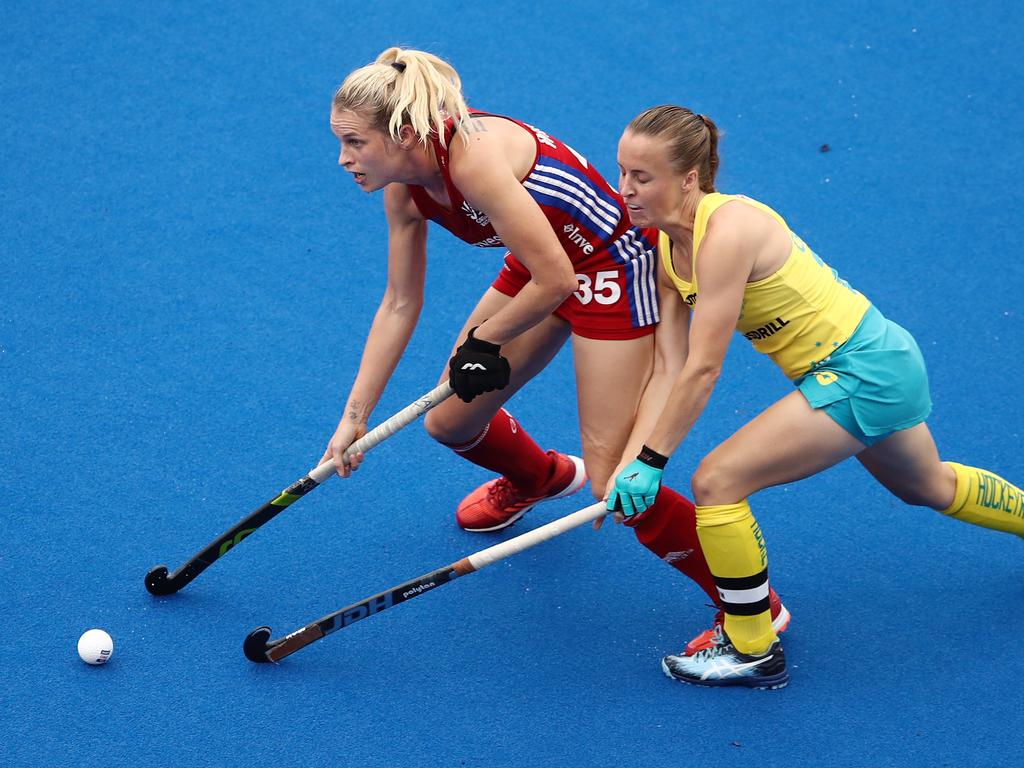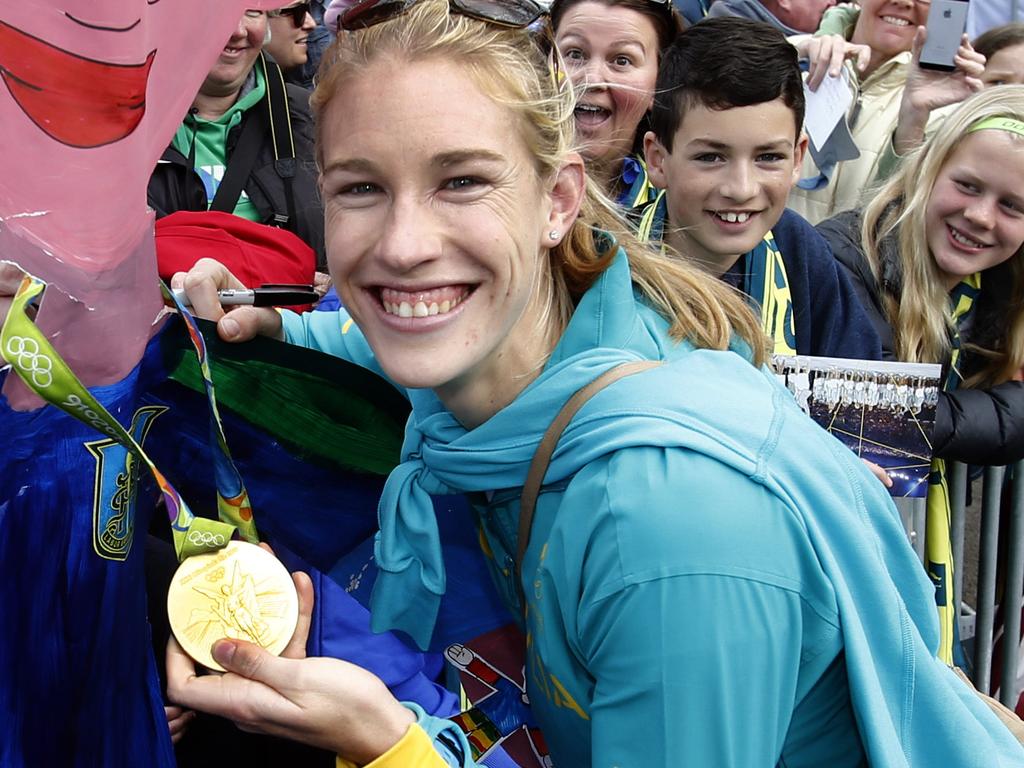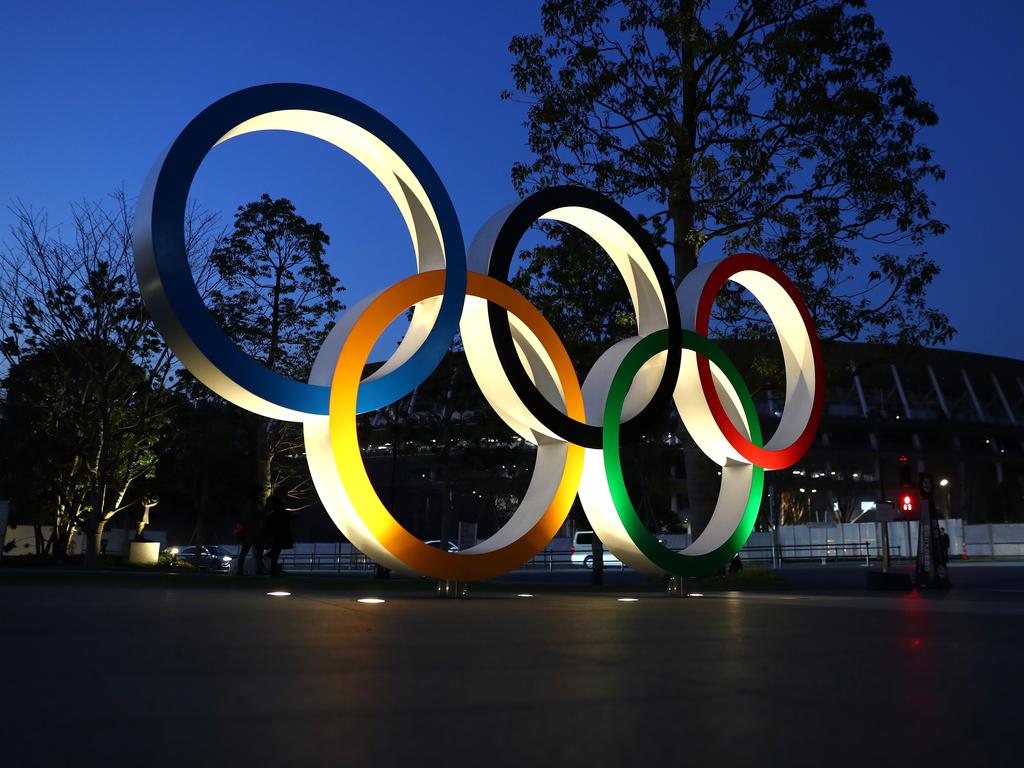Olympic bosses warned of swimming cuts
Swimming, the jewel in Australia’s Olympic sporting crown, faces funding cuts after the Tokyo Olympics.

Swimming, the jewel in Australia’s Olympic sporting crown, faces funding cuts to its grassroots and fears major upheaval after the Tokyo Games.
Swimming Australia chief executive Leigh Russell has told state bosses to prepare for “some, if not significant, change” in funding, revealing Olympic sports chiefs have considered a proposal to band together and lobby the federal government for more money. “Our instinct and reading of the messaging back is that an increase will not occur and a decrease is definitely not off the table,” Ms Russell said in an email.
“All Olympic sports have been discussing for some time how to work collaboratively with the Australian government to demonstrate our impact and reach within the Australian community.”
Seven-time Olympic medallist Libby Trickett said some athletes would be devastated if her sport lost funding at any level, because getting people to swim regularly was the heartbeat of the sport.
Insiders say the dire state of the entire sports system is exposed if the pot of money for everyday swimmers is under such a threat.
“For me it is disheartening,” the butterfly champion said. “You want to see the athletes do the best they can and the only way they can do that (is) if they are able to focus on their craft, their talent.
“You put in so much hard work and time for four years. To even have a shot at an Olympic dream, you need to be able to have that access to not only money, but facilities, great coaches, sports scientists, physiotherapists, it needs to come together as a whole
“The way we do this is by creating organisations that have that at their core — it’s not about making money.”
The notice of a participation funding cut, comes after revelations that the Australian Institute of Sport spent as much as $5m on recruitment companies and more than $7m on leadership coaching in two years, and half a dozen executives have salaries above $220,000, including Peter Conde, the head of the AIS, who lives in Queensland and enjoys an annual salary of $426,000.
Trickett, who received $1500 a year at the start of her career and was “grateful” for the annual $20,000 at her retirement, said reading about huge wages of sporting administrators was hard to take. “When you hear of executives on such ridiculous amounts of money, you are like; ‘what do you actually contribute to the sport? How do you effect change? How are you making this easier for athletes to do their job?’” the world record-breaking swimmer said.
“The fact we are facing potential funding cuts is challenging because it is not like our expectations of athletes will then go down. We still expect them to perform and to come back with swaths of gold medals.
“How can you expect athletes to perform to their best if you don’t allow athletes the opportunity to look at it like a full-time job. It’s not something football players, who are rightfully financially cushioned with big contracts, they are professional sports, have to deal with. It still feels like Olympic sports are for amateur athletes, but you still train to a high level and as well perform to a high standard on a sometimes very small wage.”
Swimming is Australia’s best-funded Olympic sport, awarded $10.5m to fund high performance in 2019-20.







To join the conversation, please log in. Don't have an account? Register
Join the conversation, you are commenting as Logout